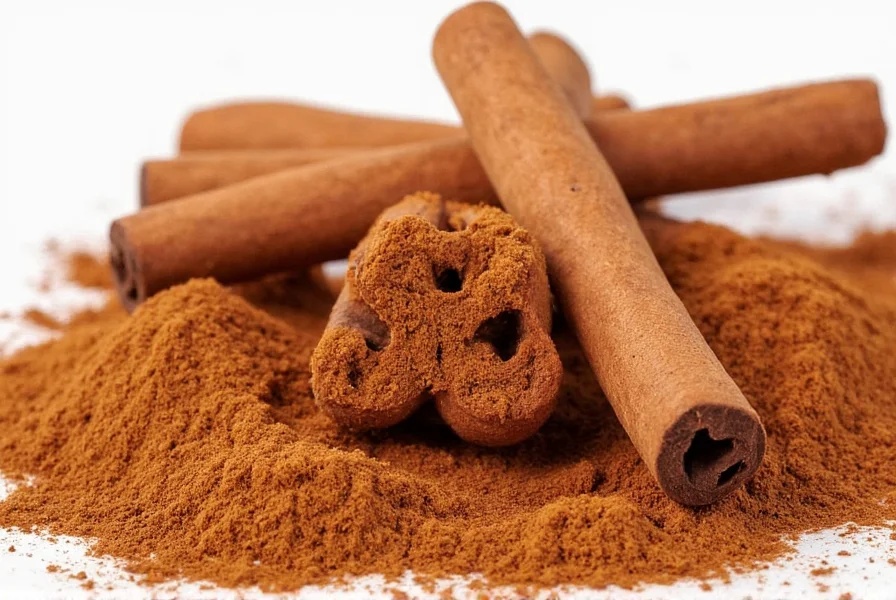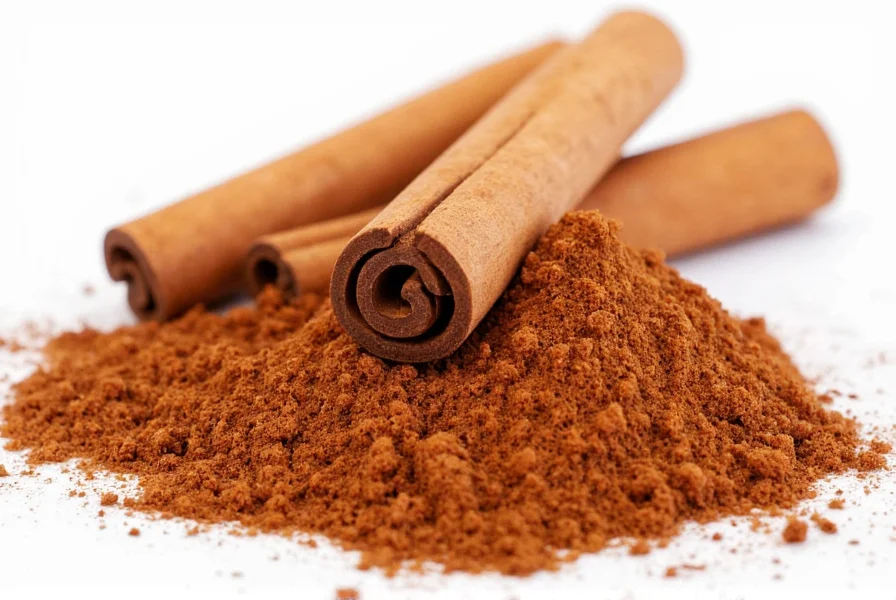Cinnamon isn't just a flavorful spice for your morning coffee or baked goods—it's a powerhouse of health-promoting compounds backed by growing scientific evidence. This ancient spice, harvested from the inner bark of Cinnamomum trees, contains bioactive components that interact with human physiology in meaningful ways. Understanding cinnamon's genuine advantages requires examining the research behind its most promising health effects.
The Science Behind Cinnamon's Health Properties
At the heart of cinnamon's benefits lies cinnamaldehyde, the compound responsible for its distinctive aroma and flavor, which constitutes approximately 60-90% of cinnamon's essential oil. This phytochemical demonstrates significant biological activity, particularly regarding metabolic regulation. Additionally, cinnamon contains high levels of polyphenol antioxidants—more than many fruits and vegetables—which combat oxidative stress at the cellular level.
Two primary varieties dominate the market: Ceylon cinnamon (Cinnamomum verum), often called "true cinnamon," and Cassia cinnamon (Cinnamomum cassia), which accounts for most cinnamon sold globally. While both offer health benefits, they differ significantly in coumarin content—a compound that can cause liver issues in excessive amounts. Ceylon contains substantially less coumarin, making it preferable for regular consumption.
| Cinnamon Type | Coumarin Content (per tsp) | Primary Growing Regions | Recommended Daily Limit |
|---|---|---|---|
| Cassia | 3-10 mg | China, Indonesia, Vietnam | ≤1 tsp |
| Ceylon | 0.004-0.14 mg | Sri Lanka, Madagascar | No strict limit |
Documented Health Advantages of Cinnamon
Blood Sugar Regulation and Insulin Sensitivity
Multiple clinical studies demonstrate cinnamon's potential role in glucose metabolism. Research published in the Journal of the Academy of Nutrition and Dietetics found that consuming 1-6 grams of cinnamon daily reduced fasting blood glucose levels by 18-29% in people with type 2 diabetes. The spice appears to mimic insulin activity and enhance glucose uptake by cells, though it should never replace prescribed diabetes medication.
Nutrition researchers have identified several mechanisms behind this effect:
- Inhibition of enzymes that slow carbohydrate breakdown
- Stimulation of insulin receptor activity
- Reduction of advanced glycation end products (AGEs)
Powerful Antioxidant Capacity
Cinnamon ranks among the most antioxidant-rich spices according to ORAC (Oxygen Radical Absorbance Capacity) measurements. Its polyphenols—including proanthocyanidins, catechins, and epicatechins—neutralize free radicals more effectively than many fruits. A study in Oxidative Medicine and Cellular Longevity showed cinnamon extract significantly increased antioxidant enzyme activity in human subjects after 30 days of supplementation.
Anti-Inflammatory Effects
Chronic inflammation underlies many modern diseases, and cinnamon demonstrates notable anti-inflammatory properties. The spice inhibits key inflammatory pathways, particularly those involving NF-kB and prostaglandins. Research in Food and Chemical Toxicology documented that cinnamaldehyde reduced inflammatory markers in animal models by up to 60%, suggesting potential applications for managing inflammatory conditions.
Cardiovascular Health Support
Several markers of heart health appear positively influenced by regular cinnamon consumption. Clinical trials indicate that daily intake of 1-3 grams can reduce:
- LDL cholesterol by 7-27%
- Triglycerides by 23-30%
- Systolic blood pressure by 3-5 mmHg
These effects likely stem from cinnamon's ability to improve endothelial function and reduce oxidative stress in blood vessels.
Neuroprotective Potential
Emerging research suggests cinnamon compounds may protect against neurodegenerative diseases. Studies show cinnamaldehyde and epicatechin inhibit tau protein aggregation associated with Alzheimer's disease. In Parkinson's research models, cinnamon metabolites demonstrated protective effects on dopamine-producing neurons. While human studies remain limited, these preliminary findings warrant further investigation.
Practical Applications and Consumption Guidelines
To maximize cinnamon advantages while minimizing potential risks, consider these evidence-based recommendations:
- Choose Ceylon for regular use: Its significantly lower coumarin content makes it safer for daily consumption
- Daily dosage: 0.5-2 teaspoons (1-6 grams) provides benefits without exceeding safety thresholds
- Optimal timing: Consuming with carbohydrate-containing meals enhances blood sugar regulation effects
- Storage: Keep in airtight container away from light to preserve active compounds

Safety Considerations and Limitations
While cinnamon offers numerous advantages, certain precautions are necessary:
- Coumarin sensitivity: Cassia cinnamon contains high coumarin levels that may cause liver toxicity in sensitive individuals with prolonged high-dose consumption
- Medication interactions: Cinnamon may enhance effects of diabetes medications, requiring blood sugar monitoring
- Allergic reactions: Rare but possible, particularly in individuals sensitive to balsam of Peru
- Pregnancy: Moderate culinary use is generally safe, but therapeutic doses should be avoided
It's crucial to understand that cinnamon supplements aren't regulated like pharmaceuticals. Quality and concentration vary significantly between products. For therapeutic applications, consult a healthcare provider rather than self-treating medical conditions.
Incorporating Cinnamon Into Your Diet
Maximize cinnamon advantages through these practical dietary strategies:
- Add to morning coffee, tea, or smoothies
- Sprinkle on oatmeal, yogurt, or fruit
- Use in savory dishes like curries and stews
- Combine with honey for natural sore throat relief
- Create cinnamon-infused water by steeping sticks

Conclusion: Evidence-Based Perspective on Cinnamon Benefits
Cinnamon's advantages extend beyond its culinary appeal, with substantial scientific evidence supporting its role in blood sugar management, antioxidant protection, and inflammation reduction. While not a miracle cure, regular moderate consumption as part of a balanced diet offers meaningful health benefits. The distinction between cinnamon varieties matters—Ceylon provides similar benefits with significantly lower coumarin content. As research continues to evolve, cinnamon remains one of nature's most promising functional spices with applications across multiple aspects of health maintenance.
Frequently Asked Questions
What is the most effective way to consume cinnamon for blood sugar control?
Research suggests consuming 1-2 grams (approximately 1/2 to 1 teaspoon) of Ceylon cinnamon with carbohydrate-containing meals provides optimal blood sugar regulation effects. The spice works best when taken with food rather than on an empty stomach, as it helps moderate the post-meal glucose spike. For consistent benefits, daily consumption is more effective than sporadic use.
How does cinnamon compare to other spices for antioxidant benefits?
Cinnamon ranks among the top antioxidant-rich spices, with an ORAC value of approximately 267,536 μmol TE/100g—significantly higher than most common spices. It outperforms cloves, oregano, and turmeric in total antioxidant capacity, though each spice offers unique phytochemical profiles. The polyphenols in cinnamon demonstrate particularly strong free radical scavenging activity in both water and fat-soluble environments.
Can cinnamon help with weight management?
While cinnamon isn't a weight loss solution, research indicates it may support metabolic health in ways that complement weight management efforts. Studies show cinnamon can improve insulin sensitivity, which helps regulate fat storage and reduces cravings for sugary foods. However, these effects are modest and work best when combined with a balanced diet and regular physical activity—not as a standalone weight loss strategy.
What's the difference between Ceylon and Cassia cinnamon for health benefits?
Both varieties offer similar health-promoting compounds, but Ceylon cinnamon contains significantly less coumarin (a compound that may cause liver issues in high doses) while maintaining comparable levels of beneficial polyphenols and cinnamaldehyde. For regular daily consumption, Ceylon is generally recommended due to its superior safety profile, though Cassia provides similar short-term benefits when used moderately (up to 1 teaspoon daily).











 浙公网安备
33010002000092号
浙公网安备
33010002000092号 浙B2-20120091-4
浙B2-20120091-4